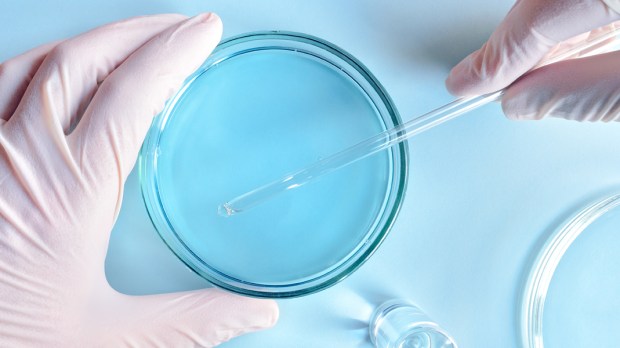In recent years, antibiotic-resistant bacteria has become such a concern that the World Health Organization has cautioned of a “post-antibiotic era,” which may be here soon. According to the CDC, in America alone around 2 million people are infected with antibiotic-resistant infections annually and in less developed countries it is quickly becoming one of the greatest concerns in public health.
In an urgent search for new natural antibiotics, scientists are examining ancient remedies in order to determine what made them effective. One such remedy comes from the Boho Highlands of Northern Ireland, where ancient Irish Druids utilized natural antibiotics from the soil. Inverse reports the findings of these scientists, published in Frontiers in Microbiology:
[The] alkaline soil sampled from the Sacred Heart Church in the town of Toneel North contains a new strain of bacteria they named Streptomyches sp. myrophorea. Testing revealed that this strain inhibited the growth of four of the six multi-resistant pathogens identified by the WHO as “high priority pathogens.”
These strains my be new to the scientists, but the people of the Boho Highlands have been using their soil in Irish folk medicine for hundreds, if not thousands of years. While it is unknown how the remedy was developed, it is still a common practice of the area to wrap a pinch of soil in cloth and place in next to a sore tooth and even some infections.
Co-author of the report and Swansea University Medical School professor Paul Dyson, Ph.D. released a statement which seemed hopeful that more sources of forgotten antibodies may be discovered. He suggested the effort could extend to a significant portion of the scientific community:
“Our results show that folklore and traditional medicines are worth investigating in the search for new antibiotics,” Dyson said. “Scientists, historians, and archeologists can all have something to contribute to this task. It seems that part of the answer to this very modern problem might lie in the wisdom of the past.”
The new strain of bacteria belongs to the genus Streptomyces, a category that contains more than 500 species found in soil and water. Some of these species have already been developed to produce two-thirds of clinical antibiotics of natural origin. That this newly discovered species can resist two-thirds of known multi-resistant pathogens — also known as ESKAPE pathogens — is reason for hope indeed.
Study co-author and Swansea senior research officer Matthew Hitchings, Ph.D., says these bacteria are so valuable to antibiotics because they are capable of producing secondary metabolites.
“These bacteria produce a plethora of bioactive secondary metabolites that have a range of uses including as antimicrobials, anti-cancer agents, anti-fungal agents, in addition to various other medicinally important compounds,”
As the team has already established that Streptomyches sp. myrophorea can resist four of the six known ESKAPE pathogens they would like to begin development as soon as possible. The authors note that antibiotics produced through combinatorial chemistry have not led to effective drugs and they stress the need for further exploration of natural sources.
The team will continue to search out niche ecosystems, such as alkaline environments and thermal vents, in the hopes of discovering new antibiotic strains to fight the coming “post-antibiotic age.” They will also study the new Irish strain in order to learn what makes it so resistant to ESKAPE pathogens. If they can do this, antibiotic-resistant pathogens may become a thing of the past.
“Whilst we have yet to identify the exact compound or compounds responsible for these promising findings, our work continues in not only manipulating this strain in the lab, but also exploring the genomics of this and other organisms,” Hitchings says. “It is hoped that this continued research may lead to the development of novel drugs that can help improve the fight against current anti-microbial resistance and, in the long-term, improve public health and well-being.”

